On a recent rainy Wednesday afternoon, Reggie, wearing an oversized poncho and carrying a backpack full of his belongings, walked into St. Mary’s Episcopal Church to attend a H.O.P.E. meeting.
H.O.P.E., which stands for Homeless Organizing for Power and Equality, is a grassroots organization under the Mid-South Peace and Justice Center (MSPJC) that offers self-advocacy support to those who are currently or have formerly been homeless.
Reggie was one of half a dozen attendees at the group’s February meeting. It was his second time going to a meeting since he came to Memphis a couple of months ago. He joined the others, making small talk as they sat around a table, sharing pizza, coffee, and soda. They got hygiene kits and bottled water to take with them.
Alice Petit, a MSPJC board member, brought two waterproof tents to the meeting. One was for a man who regularly sleeps on the church grounds, and the other was for Reggie.
Reggie is one of some 1,300 individuals without permanent housing in Shelby County. According to the Point-in-Time Unsheltered Count required by the U.S. Department of Housing and Urban Development (HUD) each year, in 2019 there were 58 unsheltered individuals, and 1,267 sleeping in transitional or emergency shelters here on the night of the count last January.
The numbers from this year’s count, which was done on January 22nd, will be available in March. The data will be submitted to HUD and used to determine what resources Shelby County needs to address homelessness and provide housing for unsheltered individuals.
The data shows only a snapshot of the county’s homeless population, says Cheré Bradshaw, executive director of the Community Alliance for the Homeless (CAFTH), which leads a community effort to end homelessness in Memphis and organized the local count.
Bradshaw says CAFTH is the lead agency for coordinating with HUD so that agencies here have the funds to continue their work. Each year, the county gets about $6.7 million from HUD to combat homelessness and provide housing.
Bradshaw says homelessness is a big issue in the county, “but we’re doing really well ending it, at least for a lot of people.” CAFTH’s goal is to end long-term homelessness and make future homelessness “rare, brief, and one-time,” Bradshaw says. “We know that people will become homeless, but they don’t have to sit out there for a year.”
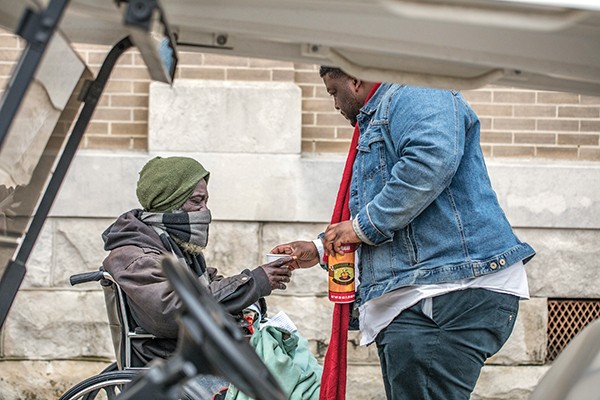 Photographs by Justin Fox Burks
Photographs by Justin Fox Burks
Without a Home
Reggie, who wished to keep his last name out of this story, has not had stable housing for nearly seven years. He was born in Columbia, Georgia, where he grew up in a lower-middle-class family. When he was 18, he was kicked out of his family home and left to fend for himself. Since then, and up until recently, unable to keep a steady job, Reggie moved around regularly, sleeping on friends’ couches, in shelters, and most recently in the woods near his hometown.
After hearing that Memphis had more resources and opportunities than Georgia, he saved enough money through panhandling to catch a Greyhound bus here in January. But Reggie hasn’t found the resources he hoped to find here. He spends his days walking around Downtown Memphis and his nights sleeping on park benches, in alleys, or in church doorways. His meals consist of sack lunches from churches or whatever he can find in Downtown dumpsters.
“I just look for unopened packages,” he says. “I found an unopened pack of Oreos today that someone had thrown away, so I ate that. I just eat whenever and whatever I can.”
After having a violent encounter at a shelter in Georgia, Reggie avoids going to emergency shelters or other places where a large amount of people gather to receive services. “Someone pulled a switchblade on me,” he says. “I thought I was going to die that night. I haven’t been back to a shelter since then because I don’t want any more trouble like that.”
Reggie says the life of a homeless person is constantly discouraging and every day he feels a range of emotions. “It rains and it’s wet and you can’t get dry,” he says. “I feel like there’s no way out. Sometimes I think it’ll be okay, then other times it’s back to being rough. Sometimes it’s depressing. It’s always lonely.”
On the streets, Reggie’s biggest fear is his safety. “People get robbed out here,” he says. “The homeless lifestyle is dangerous. You can’t really relax. You always have to have your guard up. There’s never a night when I can actually just sleep.” The hardest part, though, Reggie says, is not the weather or the lack of security, but the way he is treated. “It’s the way people look at me. They think I’m a criminal or a violent felon or I’m crazy. When people see me walking, they’re terrified just because of my appearance. I have no criminal record. I’m just a person who’s laid-back, quiet, and kind — and looking for help.”
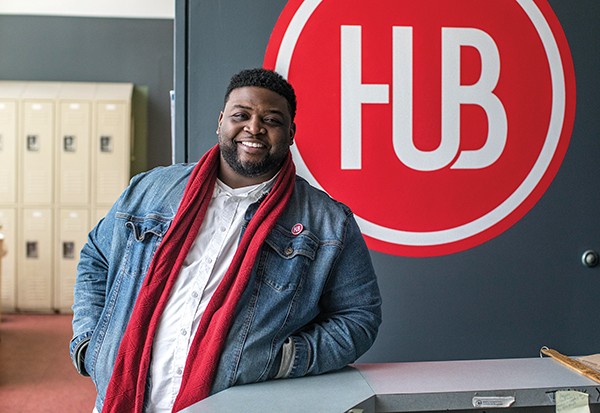
Darius Clayton works with the Hospitality Hub outreach team to help individuals experiencing homelessness.
The Hub
Each day, the Hospitality Hub’s outreach team goes out looking to help people like Reggie.
The Hub, founded in 2007, is a resource agency located Downtown that works to help people exit homelessness.
Kelcey Johnson, executive director of the Hub, says outreach is an important part of the agency’s work “because a lot of people aren’t going to come to see us, so we try to find out where they are and go see them. … A lot of people have never heard of the Hub or don’t trust an agency or they received bad information on the street, like no one will help them or if you’re a felon you can’t come. None of that stuff matters. Anyone can come here.”
Johnson says the Hub is “not a traditional place where homeless people would come. We don’t do soup. We don’t do clothes closets. We don’t do stuff like that.” Instead, Johnson says, the Hub’s staff interviews clients to figure out their specific needs, what is causing their homelessness, and what’s keeping them homeless.
“The cause of your homelessness may be multiple incarcerations,” he says, “but the thing that’s keeping you homeless could be a drug addiction or PTSD from being in prison, the ability to get a job because of your incarcerations, or the ability to keep a job because of mental illness.”
Johnson says the agency works to “attack all those areas by wrapping the person up” and providing clients various types of case management. The Hub connects clients with partner organizations that do “anything and everything,” he says.
The main needs of Hub clients include finding housing and jobs, obtaining a state ID or birth certificate, accessing a mailbox, applying for food stamps, and paying for health care.
On a given day, about 125 people walk into the Hub, Johnson says: “Some people are waiting for us to open just to use the bathroom and get a cup of coffee.”
To better reach those who could benefit from the agency’s services, the Hub is opening a day plaza. It’s expected to open “any day now,” Johnson says, and it will be a “place of beauty where people can rest.”
Over the next year, the plaza will be expanded and more amenities will be added. Johnson says the space will allow the Hub to do a new kind of outreach. The plaza will be similar to a park, serving food daily and providing cooling stations and misters, water fountains, places to rest, and restrooms.
Case managers will also be on-site to talk with visitors and assess their needs. The plaza is only a piece of what the Hub has planned for 2021. The agency is also relocating and expanding into a new office next to the plaza that will house the Hub’s resource center and a new women’s shelter, something Memphis needs desperately.
Based on data from the Hub, 37 percent of Memphis’ homeless population are women, but only 6 percent of the beds in shelters are open to women.
“There’s so much work to do,” Johnson says of the new shelter. “It’s going to be different from every other shelter anywhere. We’re talking to women shelter directors from around the country and gathering best practices.”
The shelter will house 32 private rooms that are expandable to accommodate women with children. Most family shelters require a referral, but Johnson says the Hub’s will be “zero-barrier” and no referrals will be required. “If you’re a woman living with your kids and your boyfriend comes home and punches you, and you decide you want to leave, there’s nowhere for you to go that night in Memphis at this time.”
The goal will be for women to stay there for 21 days as the Hub helps them find sustainable, long-term housing.
Below the shelter, the building will house the Hub’s other services, making it a “one-stop shop, not just a shelter for women,” Johnson says.
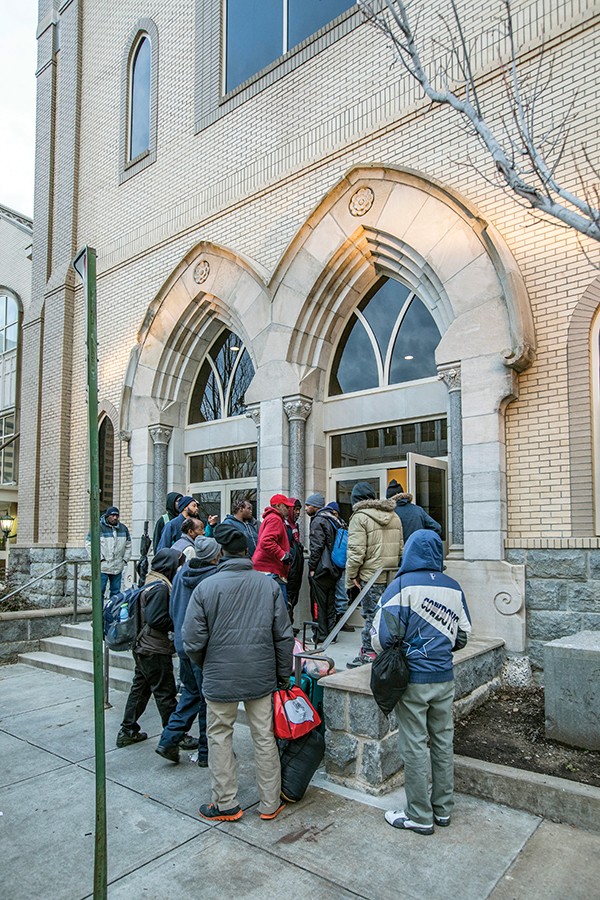
Room In The Inn guests line up to enter a church for the night.
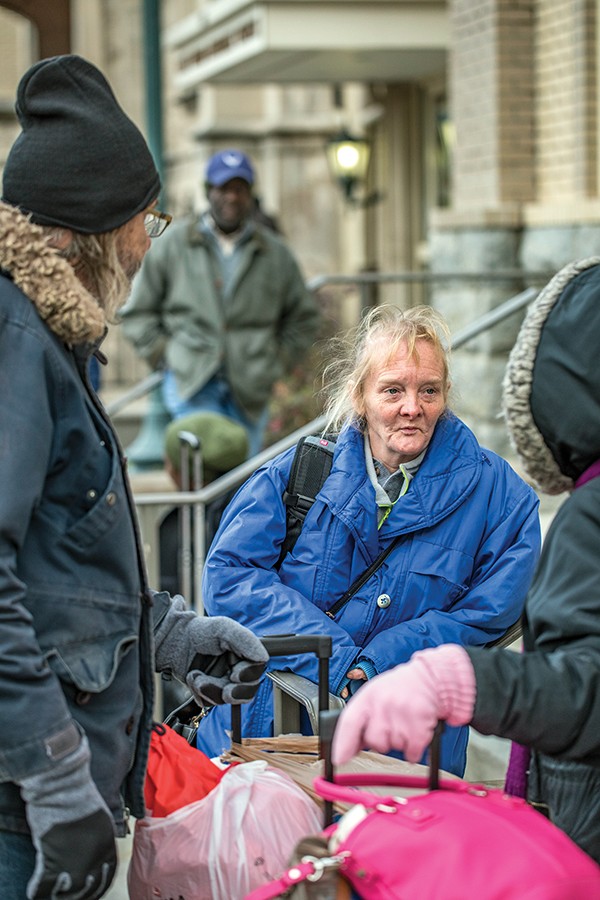
Room IN the Inn
Emergency shelters for women are scarce in Memphis, and because of this, Room In The Inn (RITI) gives women first preference.
RITI, which exists to “serve those experiencing homelessness in a safe environment of hospitality,” operates seven days a week, providing emergency temporary shelter at no cost.
Through partnerships with local congregations, RITI places guests at churches across the city for the night. There, guests are given a meal and a place to sleep, and sometimes access to showers and clothes closets.
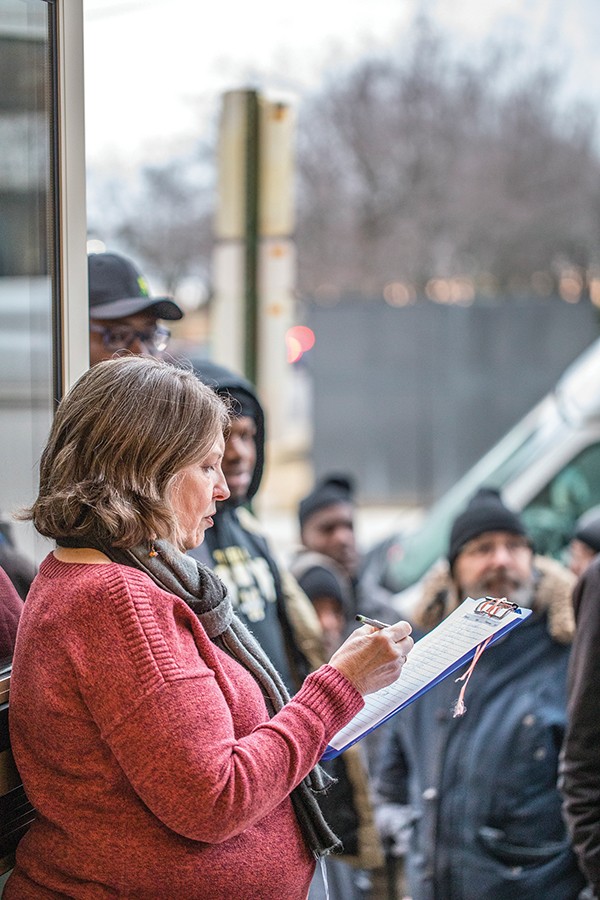
Lisa Anderson, director of Room In The Inn, helps individuals experiencing homelessness at the RITI intake center.
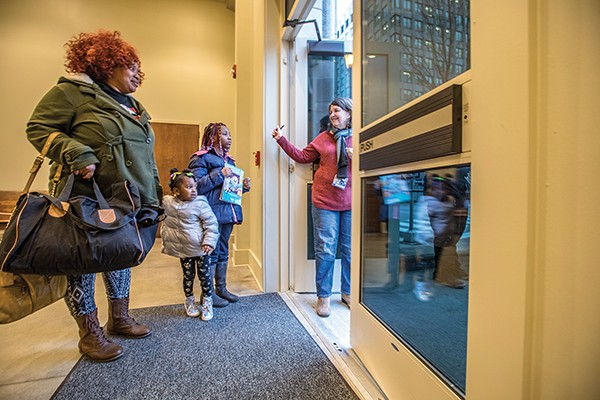
Many of the guests have jobs, says Lisa Anderson, executive director of the program. And they are working on a plan to get out of homelessness.
“Some have settled into this life,” Anderson says. “Others are temporarily frustrated and need a place to get back on their feet.”
Autumn, a regular at RITI, is looking to get back on her feet. When her husband of 18 years had a stroke and died in 2017, she went from living a comfortable, stable life to living in group homes, on the street, or at RITI.
“My husband had a decent job and made good money,” Autumn says. “Our bills were paid and the kids were taken care of. I never worried, and I definitely never imagined I would be here. It can happen to anyone. It could be anyone.”
OUTMemphis
One demographic at high risk for homelessness is LGBTQ youth, ages 18 to 25, says Molly Quinn, executive director of OUTMemphis.
Nationally, one in four youth living on the street identifies as LGBTQ, according to a recent youth homeless study done by the Williams Institute. Quinn says there is not a lot of local data on the number of homeless LGBTQ youth here, but studies also show that the rate for LGBTQ youth is much higher in urban areas, urban areas in the South, areas with high poverty, and urban areas where people of color make up the majority of the population.
“And Memphis fits into all of those categories,” Quinn says. Over the past decade, she says, the center has received “tons and tons” of inquiries and walk-ins from LGBTQ youth experiencing homelessness or housing instability. “People came looking for everything from hygiene supplies and food to long-term housing.”
Quinn says the majority of displaced youth come to OUTMemphis for assistance because they have experienced “family conflict.” This could include being kicked out after coming out to their family, making their home a hostile environment. And a lot of it happens when youth turn 18, Quinn says. “Their parents no longer have a legal obligation to be a parent, so they’re like, ‘Okay, you’re on your own.'”
The majority of those who come seeking help are transgender youth of color, who have few places to go where they can be accepted and supported, Quinn says.
Many of the shelters in Memphis are segregated by sex, says Quinn. “This means transgender individuals either have no place to go or if they go, they have to be closeted or put themselves at great risk.”
Tennessee has no legal protections for LGBTQ people, she adds. This makes it “harder for agencies to rationalize doing the hard work, like working with the trans community when the state government consistently attacks our rights, like they are doing right now.
“Over the years, they’ve come to us and we’ve spent a long time trying to figure out what to do,” Quinn says. “Due to the lack of homeless services in Memphis in general and some of the more conservative politics around sexual identity and gender expression in the community, we basically decided five years ago to do it ourselves. We wanted to go from a place where you could go to figure out where to go to the place that could provide everything.”
OUTMemphis started the Metamorphosis Project in 2015 to respond to LGBTQ youth homelessness. The first piece of the project was the Youth Emergency Services Program (YES), which provides everything except for emergency housing, Quinn says. This includes case management, which helps youth get into college or find a job and housing. They are also provided with food, clothing, and hygiene supplies.
The second part, which began in 2017, is the rapid re-housing program, which works to get youth into permanent housing as quickly as possible and provide financial assistance for at least the first year. The last piece of the project is the Youth Emergency Center, which is slated to open at the end of March. It will be Memphis’ first LGBTQ-specific emergency shelter.
“We believe that LGBTQ people deserve to be and need to be fully integrated into civic life, but we also need spaces that are just ours, especially if you’re young,” Quinn says. “Many of them have never been in a safe space with people who are all either LGBTQ or LGBTQ-affirming like our staff.”
Quinn says OUTMemphis has been building the center at 2055 Southern Avenue for four years, and on Saturday, March 28th, following a ribbon cutting ceremony, the center will be previewed to the public for the first time.
The Youth Emergency Center will serve as a drop-in center for anyone under the age of 25 and won’t be restricted only to those identifying as LGBTQ. The services currently provided at OUTMemphis’ Cooper-Young office will be available at the new center, where, Quinn says, a social worker will be on-site at all times to help facilitate those services.
The new building will have a kitchen, dining room, computer lab, showers, and a laundry room. It will also house four dorm-room-like suites to serve as emergency shelters for LGBTQ youth. Each room is designed for one person, as Quinn says there is “value in youth having autonomy in their own space. The group setting in shelters can be just as traumatizing as living on the street.”
Adult shelters will take youths, Quinn says, but “we know that the needs of someone 18 to 24 years old are very different than someone who is 40 or 50 years old.”
Guests will be able to stay at the new facility for up to 30 days, but Quinn says that most people need between one and seven days in an emergency shelter before transitioning to something more permanent. “We’re hoping to help a pretty significant amount of kids every year.”
Quinn says the shelter could expand, but OUTMemphis “wanted to start small since we’ve never done this before.” Eventually, the additional land on the lot could be used to build more emergency housing or longer-term transitional housing.
Each day someone is homeless, the risk of danger and long-term effects multiplies. “From the day you become homeless to the day you find housing, every day that you’re on the street or homeless, you’re at such high risk for so many other things,” says Quinn.
There is a high risk for contracting HIV, as well as being exposed to drugs, targeted by sexual assault or violence, or soilicited for sex work. “All these factors can contribute to long-term homelessness,” she says. “The risk of long-term impact is so high, especially for trans youth of color.”
‘Like Trying to End Rain’
Kelcey Johnson of the Hospitality Hub says there is no ending homelessness in Memphis.
“If Memphis does a good enough job reducing homelessness, the word gets to Nashville and people there will come here,” he says. “You don’t end homelessness. Every day, people get out of the military and hit the streets. People leave jail or the hospital every day with nowhere to go. There’s no ending it. It’s like trying to end rain. But there is help, and there are options for everyone.”
Johnson says he is committed to the work the Hub and others around the city are doing to help as many people as they can exit homelessness.
“I see something happening every day,” Johnson says. “I see victories every day. I do it because people need advocates. They need someone to speak up for them. People need partners who have knowledge.”
Meanwhile, Reggie yearns to find those partners as he searches for stability and what he calls a “normal life and a way out.
“I just need something to help stabilize me,” Reggie says. “Without a house, you can’t clean up and get to a job, but without a job, you can’t get a house. So what do you do?”
For now, he’s grateful that he can replace his makeshift tent, made from tarps and sticks, with a real one. “That gives me some sense of security. If nothing else, at least I can stay dry.”

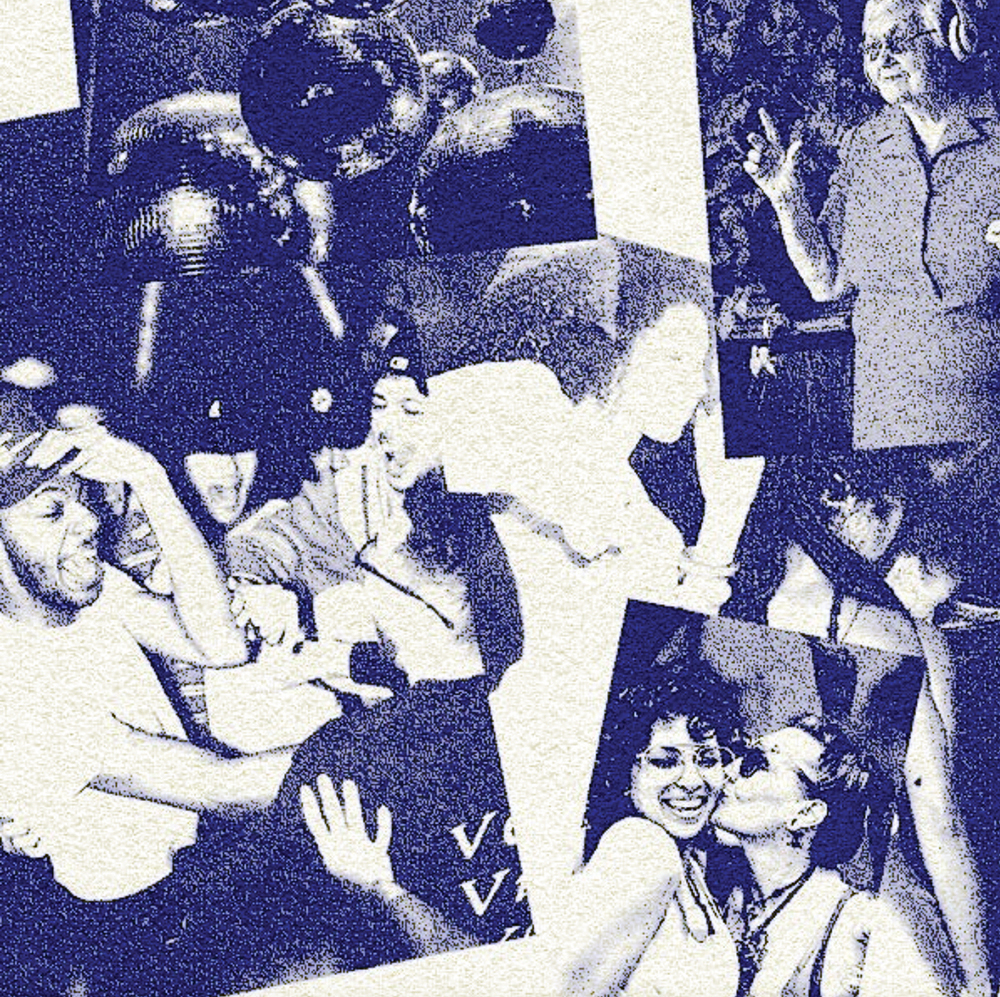



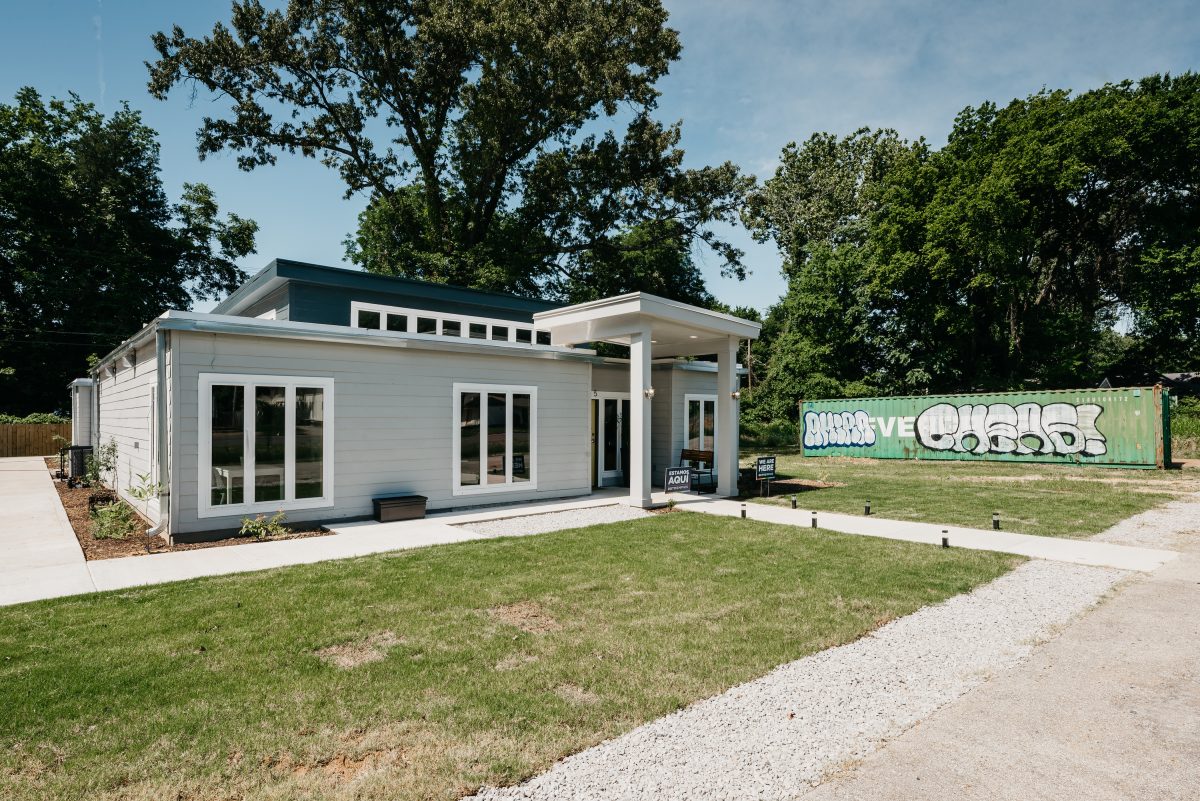
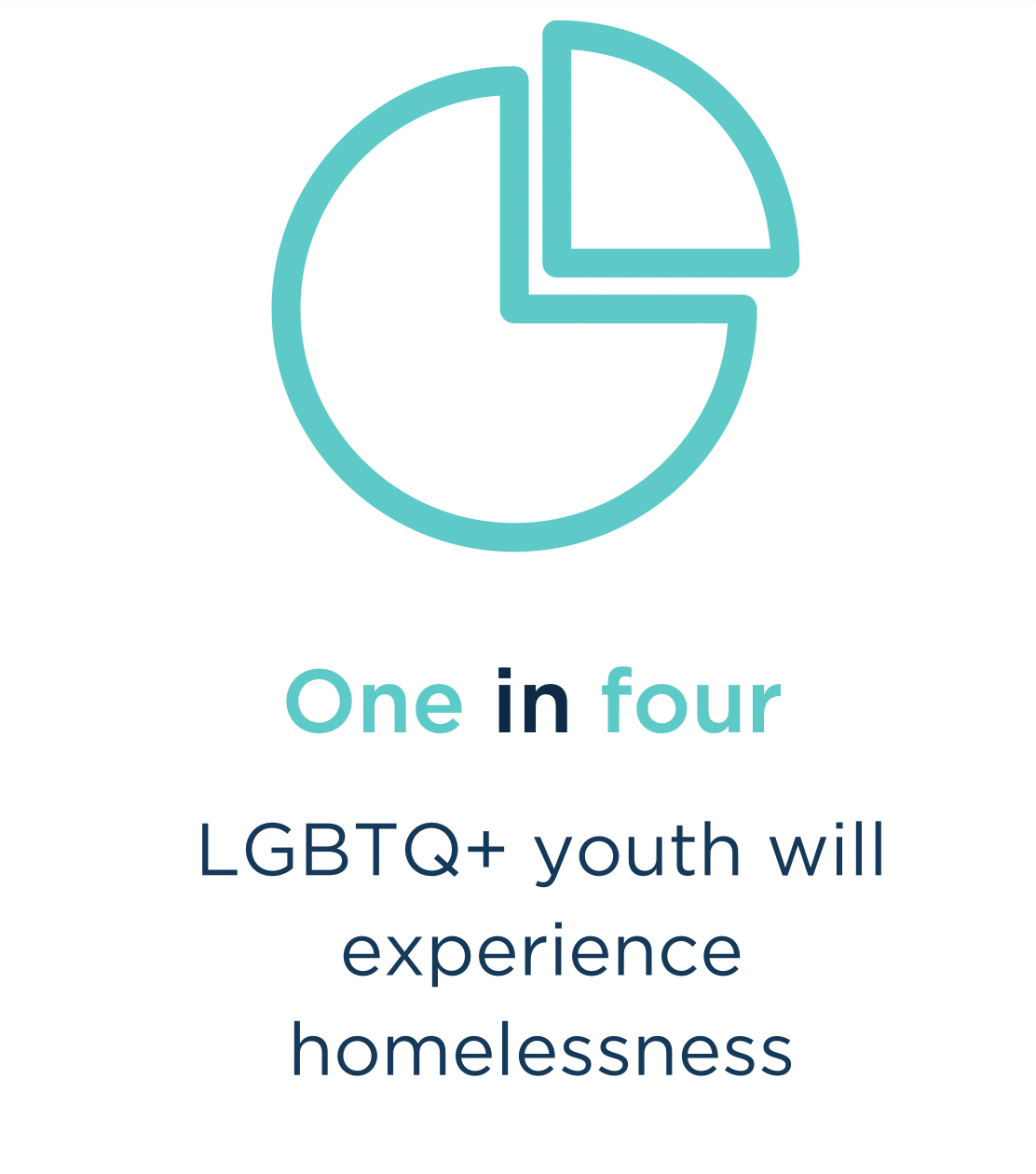
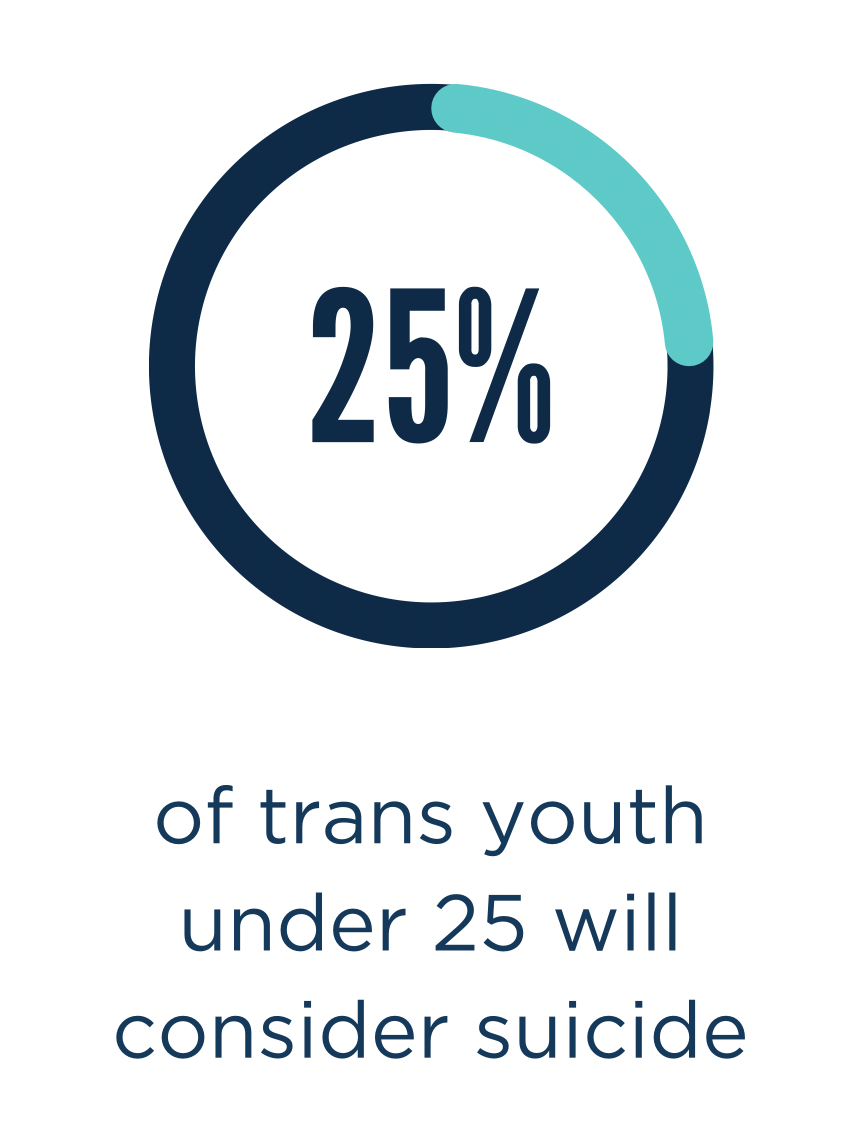
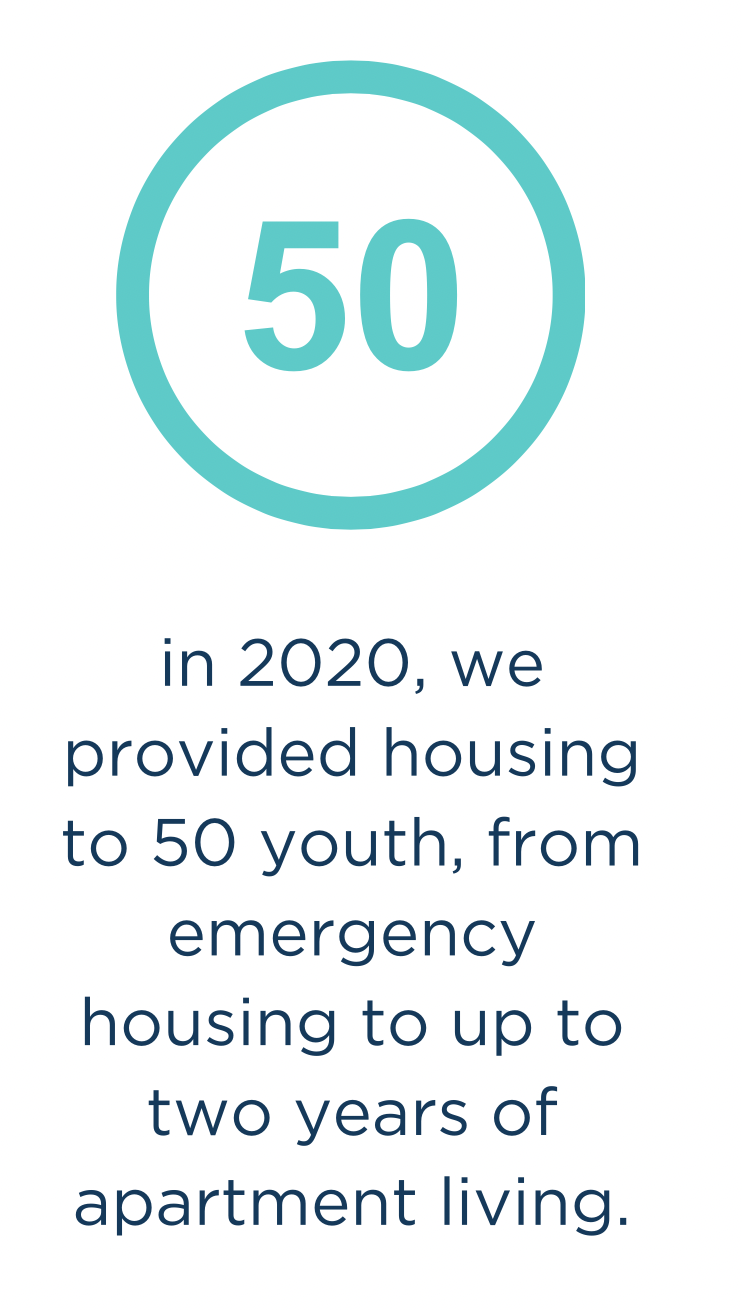
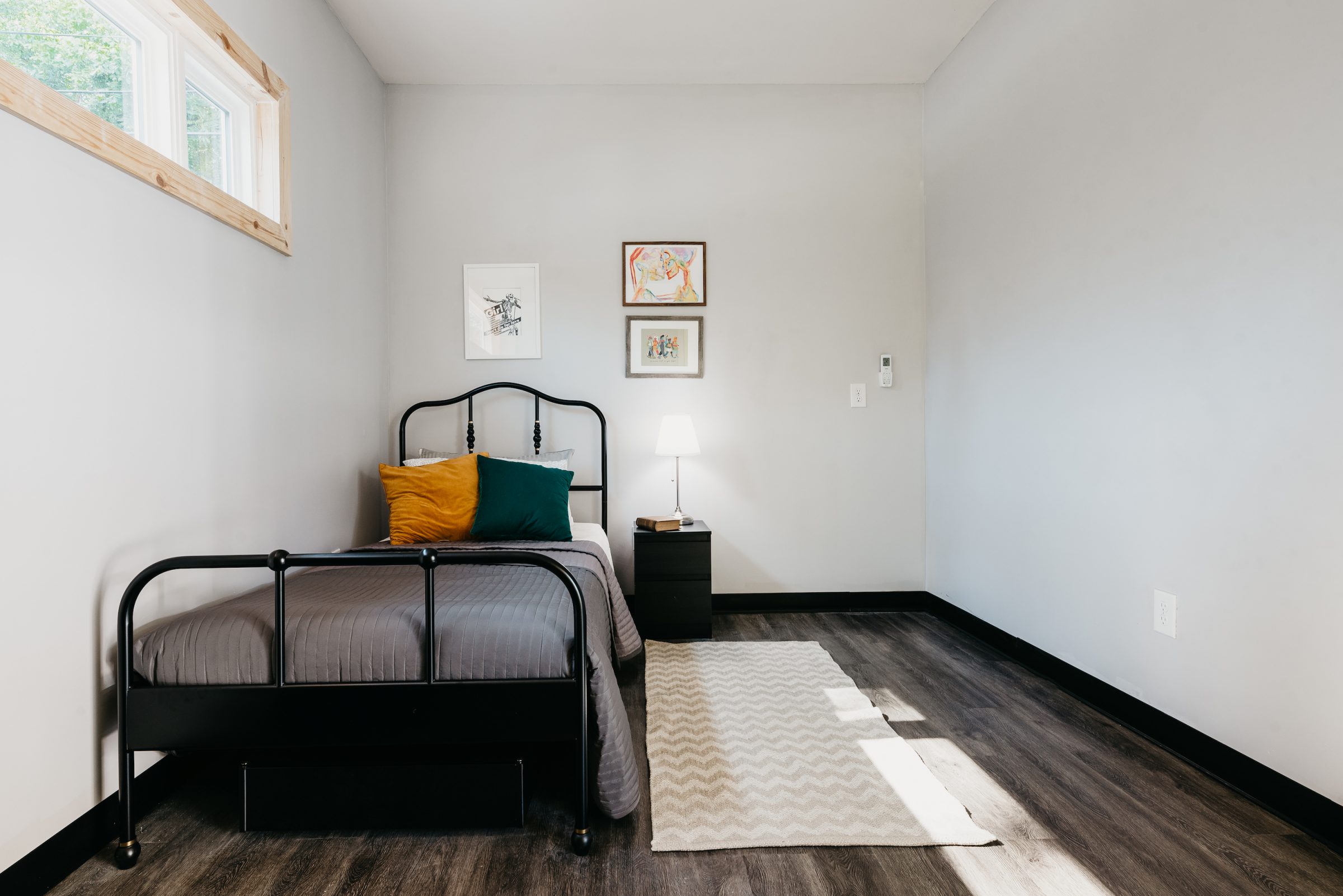
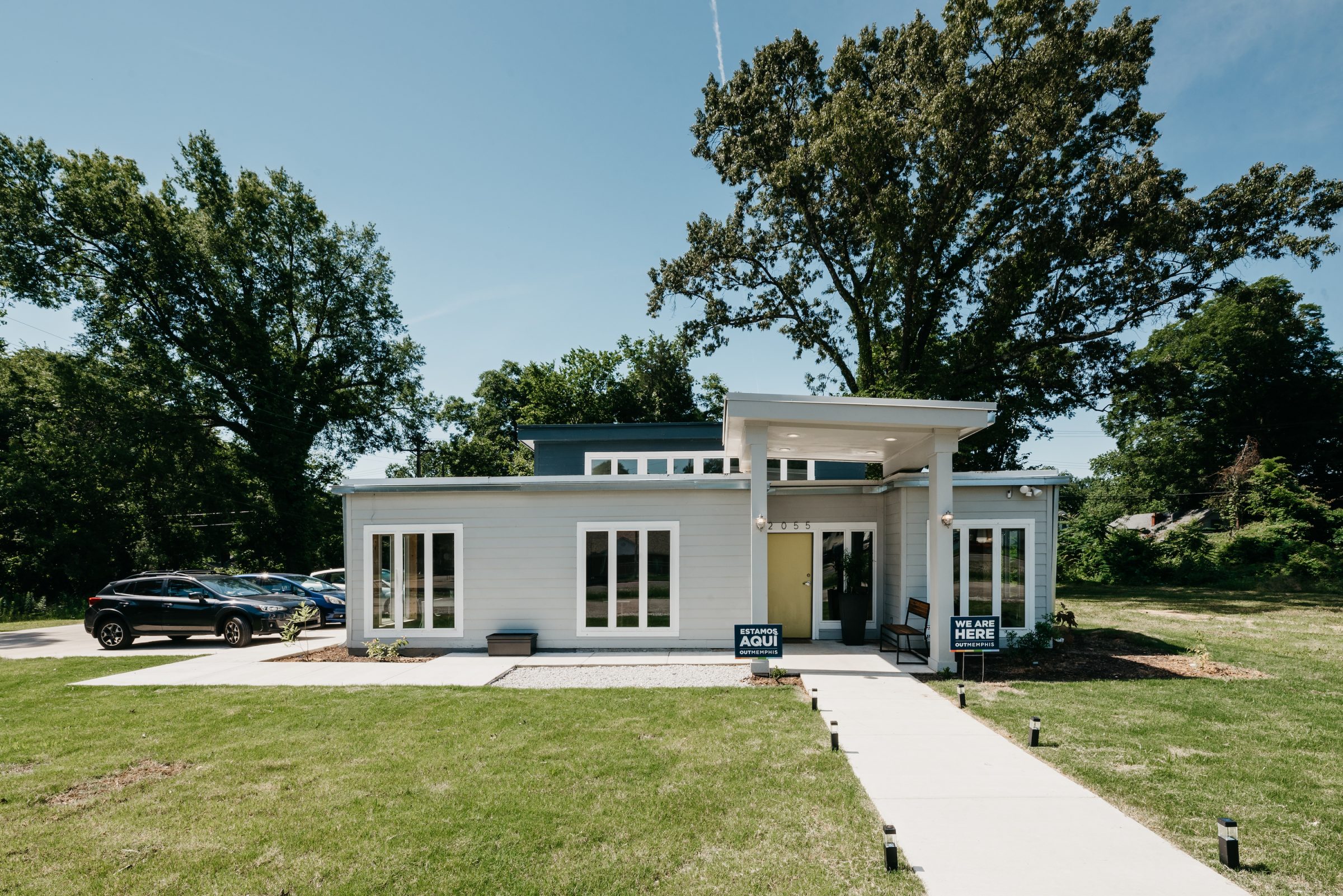
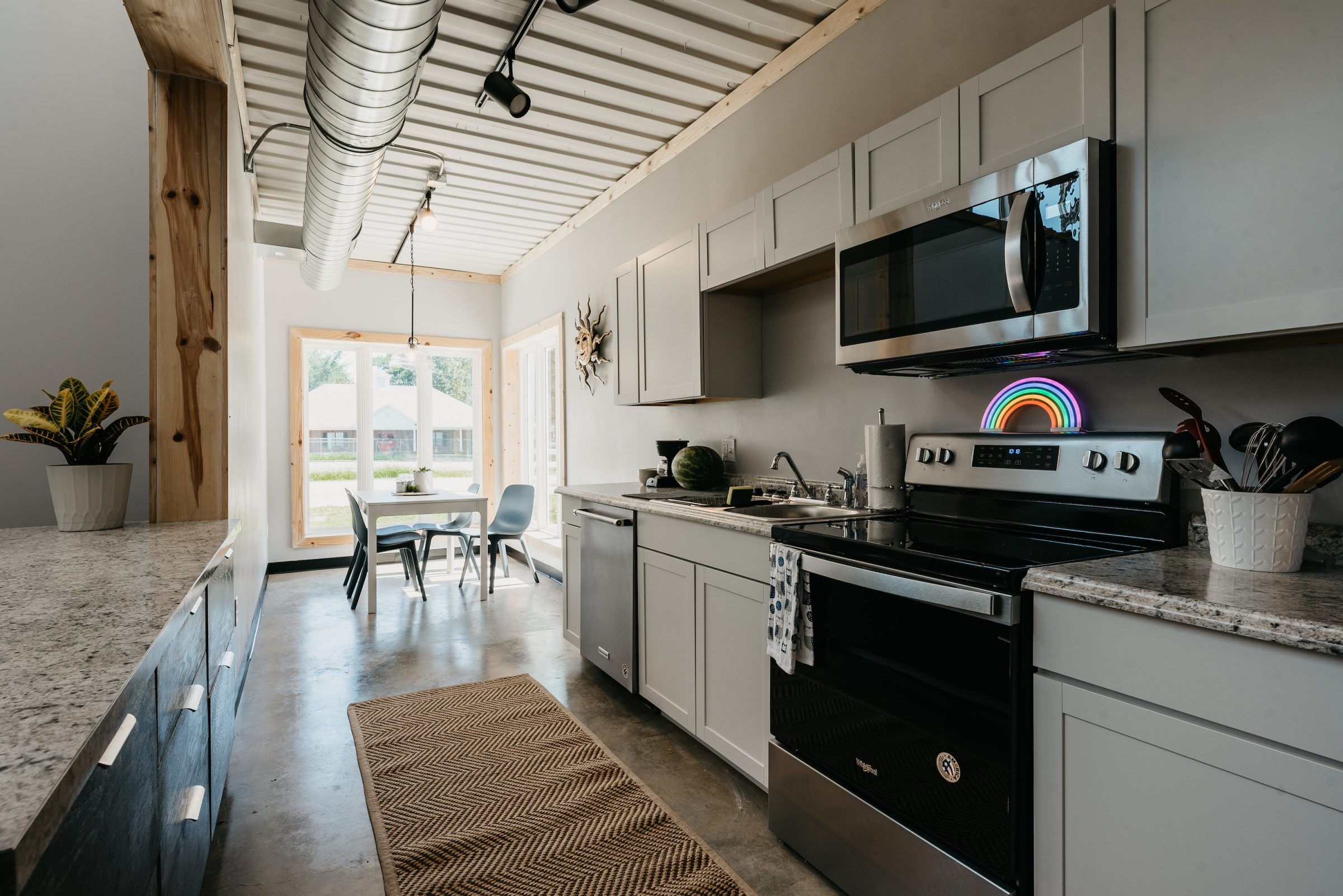
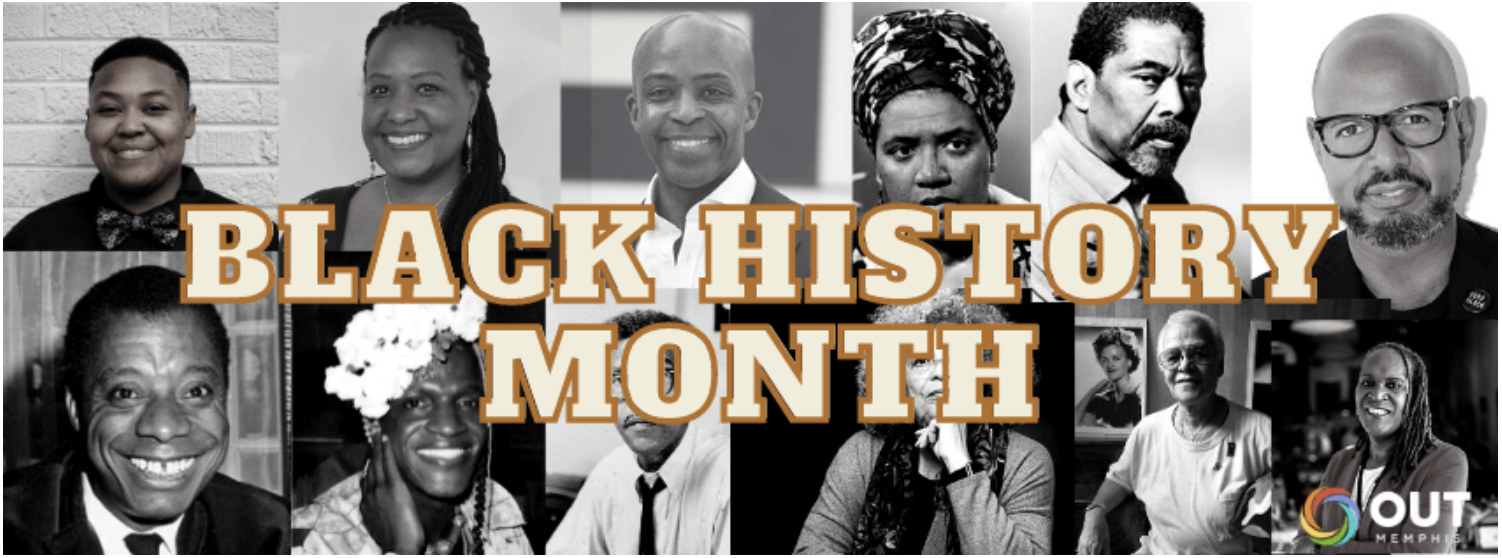
 OUTMemphis
OUTMemphis
 OUTMemphis
OUTMemphis 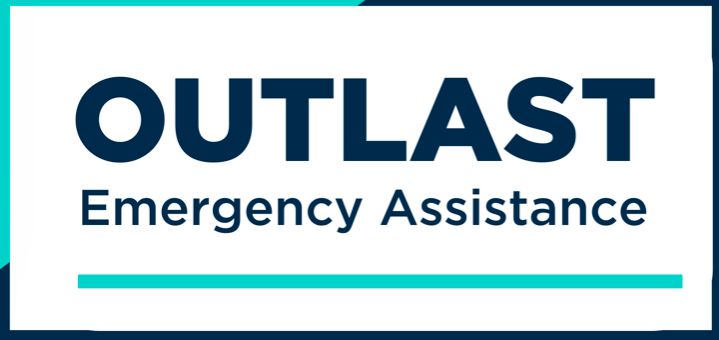 OUTMemphis
OUTMemphis  Photographs by Justin Fox Burks
Photographs by Justin Fox Burks 



